Caroline Walker's new show speaks to women everywhere, including me
'Everything related to my life with young children, because it's such an all encompassing experience,' the artist says.
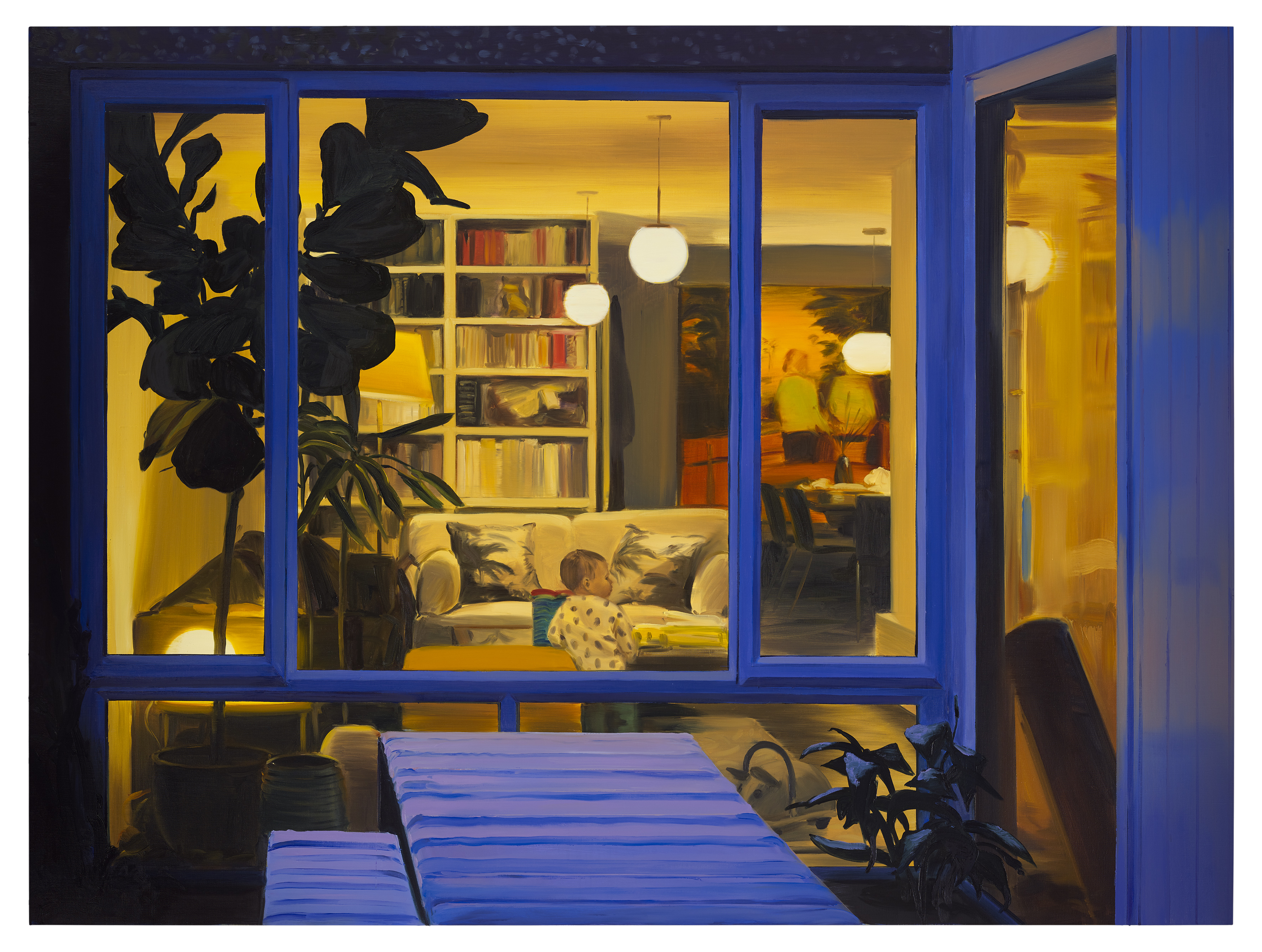
I have been a fan of Caroline Walker’s for a long time, for the technical ability inherent in the sweeping stories of her large-scale oil paintings, but mostly for her uncanny ability to make women feel seen. Walker’s focus on women's spaces shines a light on the all-encompassing nature of women’s work, spanning the economic, cultural and the social.
Walker, who is based in Scotland, is fascinated by the everyday lives of women. Her paintings capture the intimacy of women at home, in the quiet nothing of preparing bottles, folding laundry, dragging a Hoover or washing up – emotionally charged moments smoothed over by the lull of repetition and necessity. In her paintings, boundaries between the public and private space are disregarded; women are constantly on show and on call yet, in the thanklessness of their tasks, somehow are also not quite there. They speak to many women.
In her major new show at The Hepworth Wakefield, Walker unites works created over the last five years, from Daphne (2021), of her daughter as a toddler at home; to Birth Reflections (2021), a series created during Walker’s artistic residency at UCL Hospital’s maternity wing; and on to the Nurture series, which Walker began upon her return to her native Scotland in 2022.
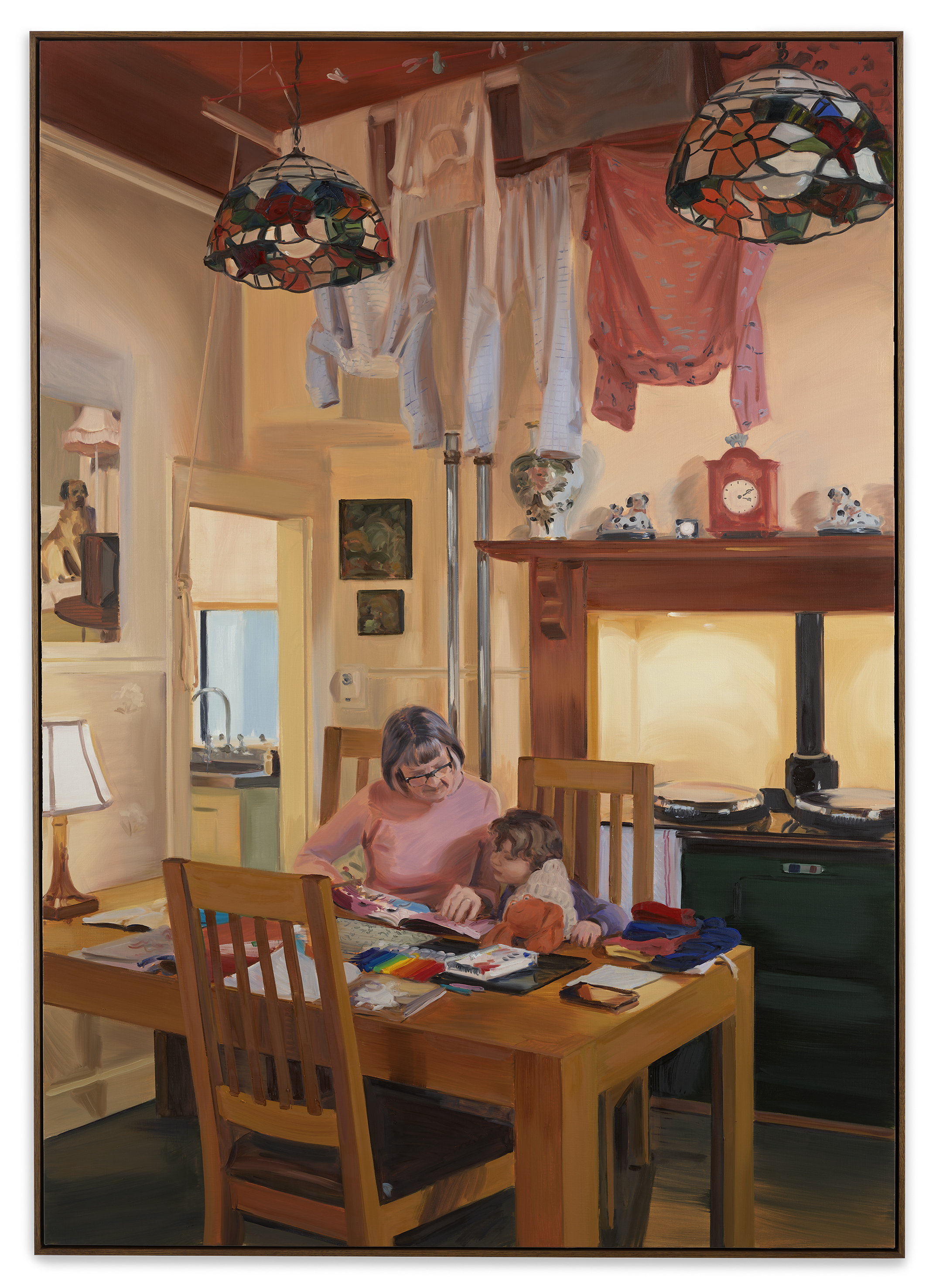
Caroline Walker, Sticker Dolly Dressing, 2024
In their elevation of the mundane, Walker’s paintings are part of a tradition of capturing the everyday, looking back to the Dutch artistic movement of the 17th-century. For artists including Johannes Vermeer and Jan Steen, domestic routines were worthy of study and a way of finding meaning in the small events which make up a life.
Walker can identify with this. ‘A lot of the Dutch genre paintings inform the way I think about composition,’ she says when we speak at The Hepworth Wakefield. ‘Like the way of looking through a space, often into the domestic space. In some paintings, you see a doorway through another window, it’s a way of constructing the scene. Late 19th-century French painting is a big influence for me in thinking about the sort of artists who were painting modern life in Paris. I see my work as paintings of contemporary life now, and I’m always keen to try and include these things that very much date it to now. Whether that's a particular type of baby bottle or something branded - do you know Sticker Dolly Dressing?’
I know it well, I say, I have three daughters.
‘In 50 years, you won’t know what those words put together mean, but it puts you in this specific moment between my daughter and my mother,' she continues. 'You're also looking at a scene that is timeless, in a way, this relationship between family, with familial support of women across generations.’
Wallpaper* Newsletter
Receive our daily digest of inspiration, escapism and design stories from around the world direct to your inbox.
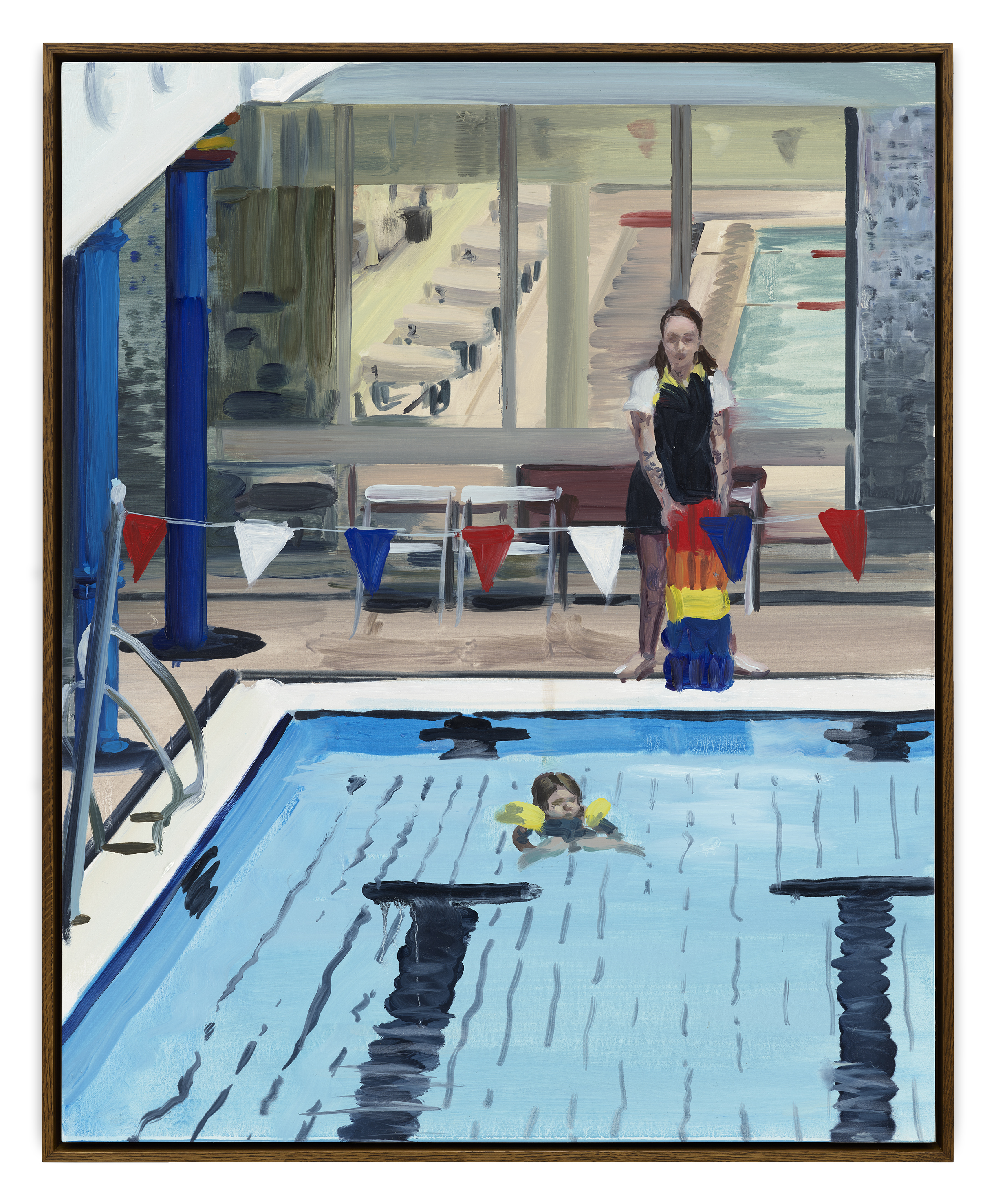
Caroline Walker, Daphne’s Swimming Lesson, 2023
This immersion into a single moment is hugely enjoyable in Walker’s paintings, which conjure up a raft of emotions and sensations. At the heart of each work lies a strong narrative, plotted from the moment Walker conceives of the image. Beginning by photographing a scene, often hundreds of times, she will sketch one of the photographs in pencil to decide if it will work as a painting. Drawings from her studio are included in the exhibition, including storyboards exploring the narrative potential in every moment.
‘Whenever I'm making any series, I'm always thinking about a range of different lighting, different palettes, different activities that people are doing,' she tells me. 'I was offered the opportunity to attend a clinic in the fetal medicine unit, and to go around the postnatal ward with the midwife while she was doing her rounds [for Birth Reflections]. I have a general idea of what I want to get from this space and the kind of activity, but I take hundreds of photos. It's not until I get back in the studio that I’m actually identifying what the thing that I'm looking for is. I'd say it's quite instinctual.’
Attending these often intimate scenes with her camera affords Walker a distance, the camera becoming a physical barrier between her and scenes closely intertwined with her personal life, a blurring of personal and professional boundaries which is also crucial thematically in her work. ‘When I look through something on the camera, it offers a more objective take. I'm already starting to think about how what I see can be translated,’ Walker adds.
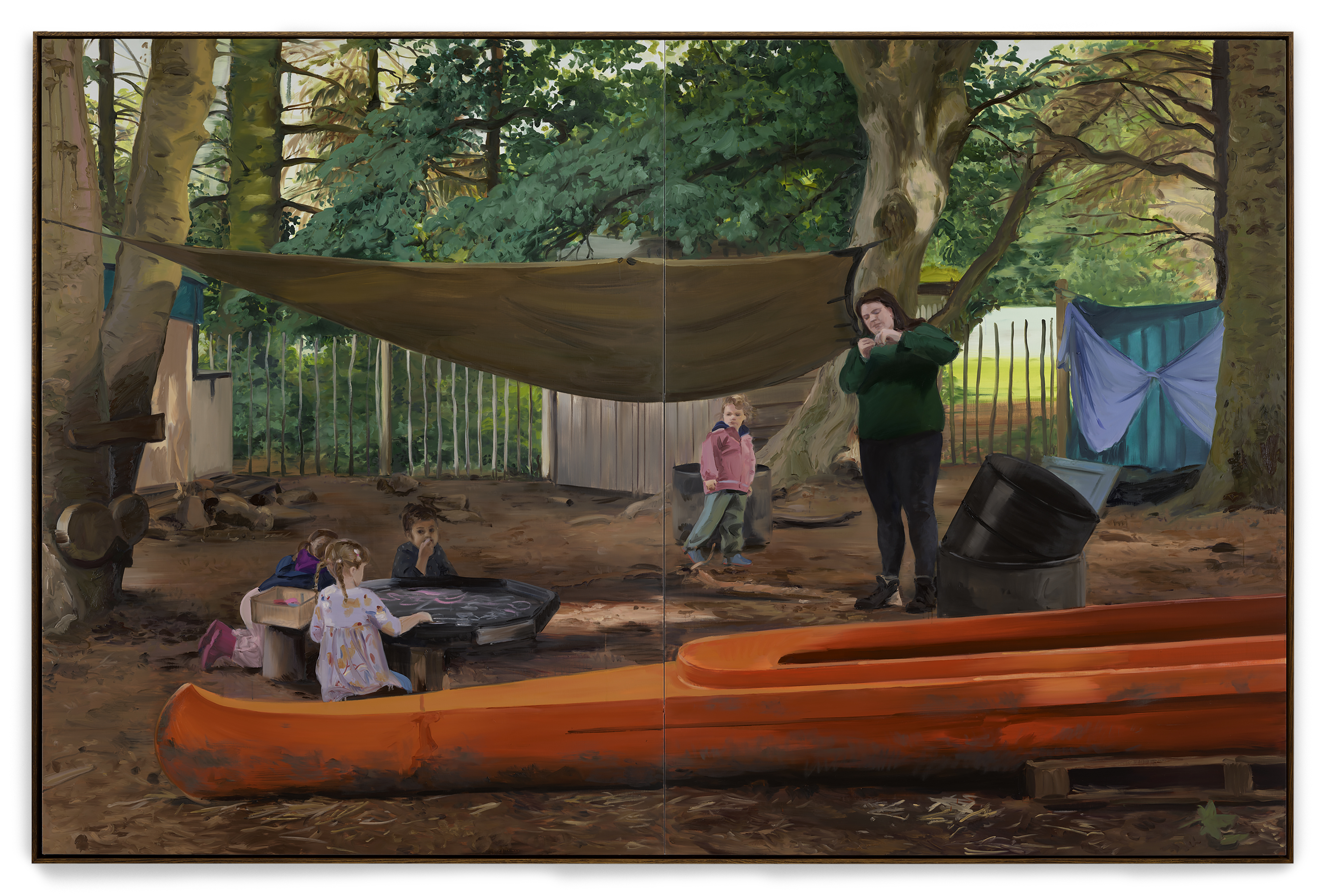
Caroline Walker, Morning at Little Bugs, 2023
‘When I moved back to Scotland, the people and the women were such a part of it. Everything related to my life with young children, because it's such an all encompassing experience.’
In the rich palette of colours, Walker affords these moments a rich meaning, reminiscent of Caravaggio’s theatrical chiaroscuro technique which combined the religious with the ordinary. Here, the moody tones and deep hues emphasise that these thankless moments are, in fact, sacred.
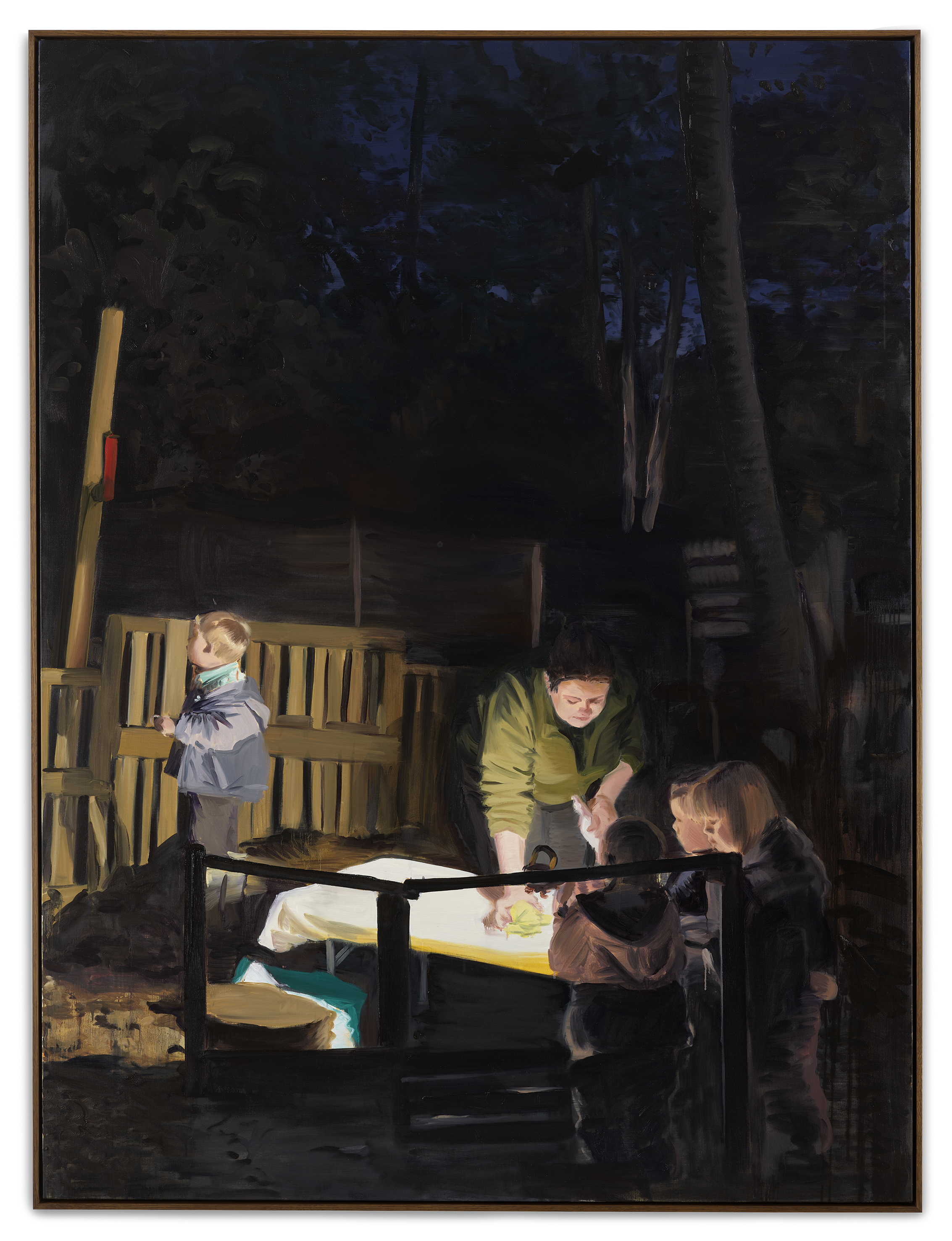
Caroline Walker, Friday Cleaning, Little Bugs, 2024.
‘So much of my life started to mix between the paid and the unpaid labour in one body of work. Because we were living up in Scotland and really close to my parents, my mum had become more than just visiting Granny, I was also asking her to look after my daughter as well,' Walker reflects. 'I became more interested in this mix of the family and being an artist. I was seeing work and life become much more entwined. [My work] is become much more personally related to my own life, but without just becoming my own picture.’
'Caroline Walker: Mothering', is at The Hepworth Wakefield from 17 May – 27 October 2025
Hannah Silver is the Art, Culture, Watches & Jewellery Editor of Wallpaper*. Since joining in 2019, she has overseen offbeat design trends and in-depth profiles, and written extensively across the worlds of culture and luxury. She enjoys meeting artists and designers, viewing exhibitions and conducting interviews on her frequent travels.
-
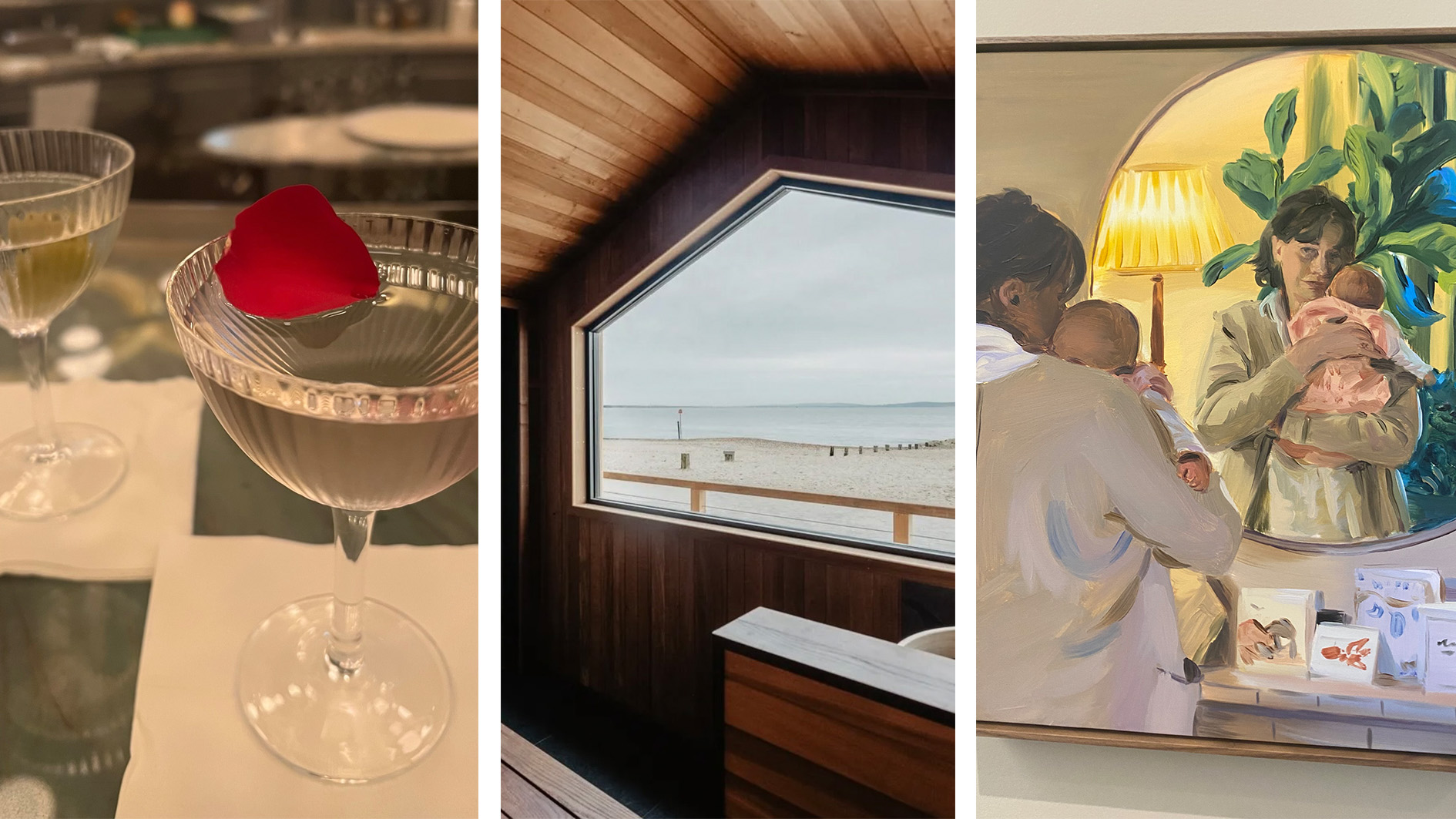 Out of office: what the Wallpaper* editors have been up to this week
Out of office: what the Wallpaper* editors have been up to this weekThe Wallpaper* team enjoyed good art, food and drink this week, attending various exhibition openings and unearthing some of the best pasta and cocktails that London has to offer
-
 Sanlorenzo presents three unique models at the British Motor Yacht Show
Sanlorenzo presents three unique models at the British Motor Yacht ShowThe Italian builder brings its largest-ever line up to the show, including an asymmetric yacht and a sporty entry-level vessel
-
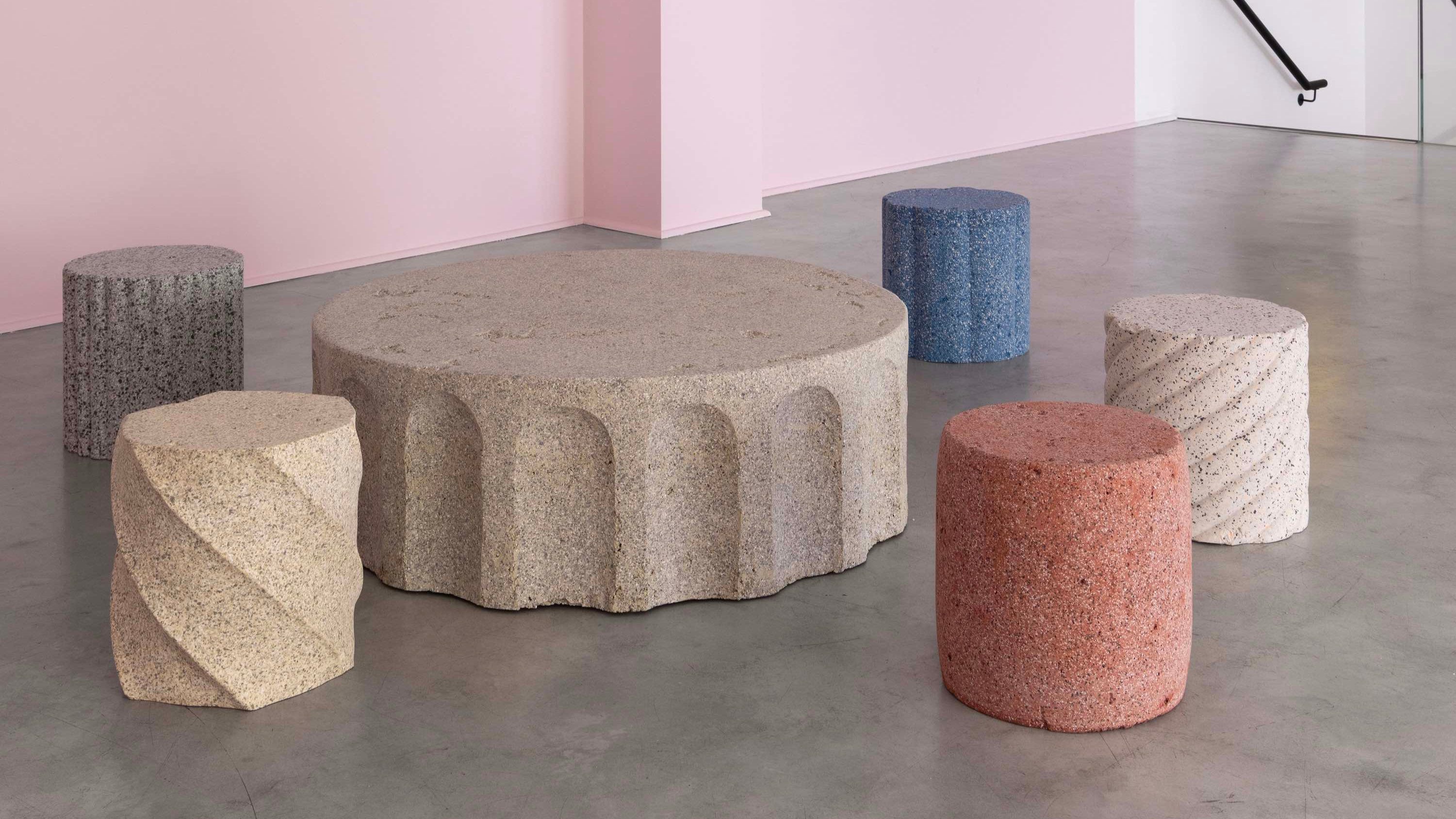 Recycled erasers become architectural illusions at Gallery Fumi
Recycled erasers become architectural illusions at Gallery FumiLondon duo Study O Portable unveil 'Rubber Rocks', trompe-l’œil furniture made from recycled erasers, exploring themes of materiality, memory and architectural decay